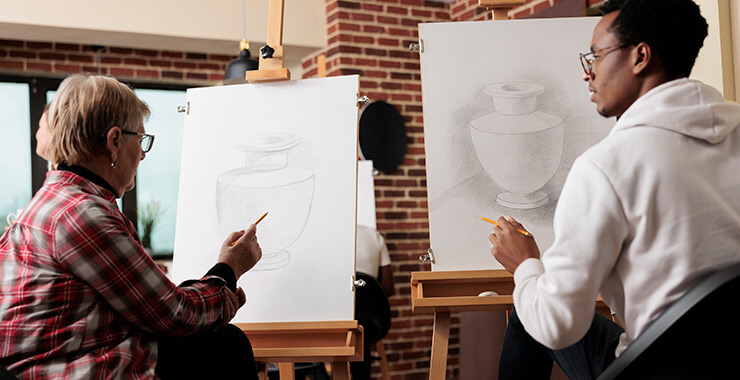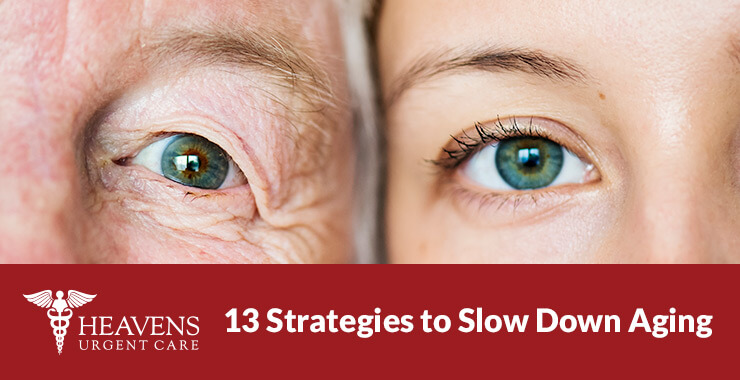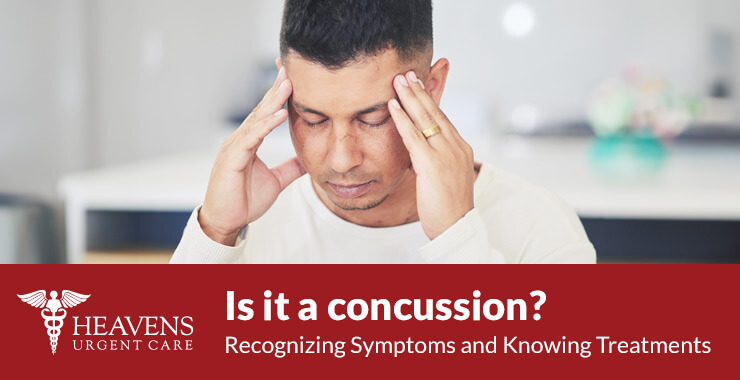They say that time is a thief. And that sentiment couldn’t be truer than when it comes to the aging of our bodies and skin. The good news is that current breakthroughs in research are telling us that it is possible to slow down the aging process when we focus on our health and wellness.
There are two measures of aging. One is a chronological age which is represented by the number of years someone has been alive on this planet. The second measurement is biological age. A biological age is greatly influenced by factors like disease, lifestyle, and environmental factors.
The Inside Story on Aging
Inside our cells, our DNA is split into 46 lengths known as chromosomes. At each of these chromosomes’ two ends is a protective region known as a telomere. Researchers have found that longer telomeres are linked to longer lifespans and shorter telomeres are linked to shorter lifespans.
So, the idea is to maintain longer telomeres. We now know that certain antiaging strategies can help us protect these telomeres.
Slow Down Aging With These 13 Strategies
1. Exercise

This should come as no surprise. Regular exercise is proven to help us defy the aging process.
According to a Harvard Alumni Study1, men who exercise regularly may gain up to two hours of life expectancy for each hour of exercise. Th5=at amounts to about two extra years over the course of a lifetime. This is because regular exercise can improve telomere length, reduce illnesses, and strengthen the immune system.
No one is talking about a hardcore exercise program. Instead, older adults who participate in moderate exercise like walking at least three times per week saw increased blood flow throughout the body, reduced inflammation, and improved muscle and joint function.
Another study2 reported that while all forms of exercise are good for your health and cognitive function, it’s endurance training that’s ideal for slowing the aging process.
If you haven’t exercised regularly for some time, start with 20 minutes of walking a day, and don’t forget that even sitting less and moving more is a great start. Don’t forget to check in with a medical professional before starting any exercise program.
2. Water
Adults who stay well-hydrated appear to be healthier, develop fewer chronic conditions, such as heart and lung disease, and live longer than those who may not get enough fluids, according to a National Institutes of Health study published in eBiomedicine2.
Chronic dehydration can also cause fatigue, foggy thinking, headaches, and constipation. Experts tell us that women should drink 11.5 cups of water every single day and men should drink 15.5 cups of water a day to stay healthy, longer.
3. Sleep

Researchers now believe that healthy sleep habits may also be linked to improved aging on the cellular level. Remember those important long telomeres? Those who get enough sleep, especially older adults who get seven to eight hours a night, have longer telomeres.
Sleep problems and fatigue are the number one complaint of most adults. Getting enough sleep offers numerous benefits for your health including boosting cognitive function and memory. To learn more, read about Urgent Care for Sleep Problems.
To improve your sleep quality, avoid caffeine after noon, go to bed at the same time each night, and make certain that your bed is comfortable, and the room is dark and quiet. If you struggle with insomnia, some medications can help but plan to talk to your doctor before making any changes.
4. Bad Habits
You may know someone who smoked, drank, and ate poorly, but still lived to an old age. The truth is that people like that are the exception, not the rule. Bad habits will not help you slow down aging.
To prolong a healthy body, severely limit or quit smoking, recreational drug use, and drinking. Since these substances can be highly addictive, reach out to a medical professional for help if needed.
5. Diet

When it comes to slowing down aging, a great place to start is an anti-inflammatory diet, like The Mediterranean Diet. Simply put, this means ditching sugar. focus on eating fruits, vegetables, whole grains, and lean protein.
The Mediterranean Diet is a type of eating plan that consists mainly of unrefined, whole-grain breads, along with some occasional pasta, couscous, and other whole grains. Eat the rainbow by including various, colorful fruits and vegetables that are rich in micronutrients, fiber, and phytochemicals. Add dairy products like low-fat yogurt, cheese, or other fermented dairy, to be eaten daily in small amounts to provide calcium for bone and heart health.
Round it all out with organic, extra-virgin olive oil from a reputable label, along with olives, nuts, and seeds are the primary source of fat. While foods high in omega-3 fatty acids like chicken, fish, and eggs should be your choice for protein.
According to the peer-reviewed journal Nutrients, specific foods that may improve telomere length include beans, lentils and peas, fruits, and sea vegetables.
Foods to avoid because they shorten telomere length and accelerate cellular damage and aging include:
- Red meat
- Processed meats
- Alcohol
- Sugar
6. Supplements
Today’s lifestyles don’t make it easy to give your body all the nutrients needed to help slow down the aging process. That’s where daily supplements come in.
There are some specific dietary supplements that have been found to support telomere length and cellular health. They are Omega-3 fatty acids, vitamin C, vitamin D, vitamin E, vitamin B, and selenium.
Vitamin B is important for energy and brain function. Vitamin C and vitamin E can enhance the immune system, and vitamin D supports bone health. Selenium strengthens a cell’s ability to grow and divide; a function that seems to diminish as we age, and Omega-3 fatty acids help with hearing and brain cognition.
7. Medical

Annual preventative medical check-ups can help identify potential issues before they start. This is also the perfect time to get questions answered, review prescriptions, update vaccinations, and schedule other routine tests.
An annual physical examination for seniors focuses on three major organ systems:
- Many seniors tend to experience high blood pressure, diabetes, dyslipidemia, heart disease and stroke, so a regular exam of the Cardiovascular System is crucial to maintaining good health.
- Testing the Brain and Nervous System is vital for evaluating memory and cognitive function.
- A look at the Musculoskeletal System and Balance is helpful to prevent falls caused by such factors as weakened muscles, bones and joints, or other chronic medical conditions and medications.
Don’t forget that for immediate needs like allergic reactions, asthma, fractures, respiratory infections, cuts, sore throats, UTIs, and more, your best line of defense is your local urgent care.
8. Dental
Dedicated at-home dental care along with annual exams, x-rays, and cleanings are one way to keep your health in check while looking more youthful.
If your sparkling smile has dimmed, it’s due, in part, to the yellowing of the dentin inside the tooth that can show through the enamel, especially as it thins and cracks with age. All that tea, red wine, coffee drinking, and tobacco also contribute to staining. Many older adults try teeth whitening products. Before deciding on a bleaching method, it’s a good idea to talk to a dentist.
9. Skincare

Aging also includes some serious skin changes4. The epidermis of the skin tends to become thinner, loses fat, and no longer looks as plump and smooth as it once did. Veins and bones can be seen more easily, and scratches, cuts, or bumps can take longer to heal. Those years of suntanning or being out in the sunlight for long periods of time have resulted in wrinkles, dryness, age spots, and even cancer.
If you have concerns about aging skin problems like excess dryness, sun damage, age spots, and skin tags, make an appointment with a dermatologist.
TIP: Stress is a normal part of life, but too much can speed up aging, particularly in the skin. The effects of stress on the skin include increased production of the hormone cortisol, which can lead to the deterioration of collagen, the protein that gives skin its elasticity.
10. Sun Protection
Sun protection is your number one defense against dry, wrinkled skin. So, make a point to protect yourself from the sun the right way by using sunscreen on sunny days and reapplying it when necessary.
Hats and any cover-ups are also a great idea, even on cloudy days. Some people like the look of a tan. If that’s you, try a spray tan or a self-tanning lotion. And don’t forget to apply sunscreen to your neck and hands. These two forgotten areas receive a lot of sun exposure and tend to age a person quickly.
11. Sociality

One day you wake up and realize they your family and friends are completely involved in their own lives, or they’ve moved on in the relationship. This realization is sobering and can bring on depression.
The fact is that we need each other. Even if we’re happy in our quiet, alone world, we need to make social interactions and connections at top priority. Not only will social stimulation bring you joy, but it can also help you live longer.
Besides longevity, researchers have found that people who feel well-connected to friends, family, and their community tend to experience improved mental health, a stronger immune system, and a lower risk of illness5.
12. Mental Health
The process of aging is no picnic. In fact, the whole thing can be quite stressful, and that stress leads to premature aging.
Slow down aging by making a self-care routine a priority in your life. Don’t hesitate to see a therapist if you need additional help and support.
13. Neuroplasticity

You know that puzzle-slash-Sudoku people have something on the rest of us, right? They know that mental stimulation is a great way to defy the aging process.
Cognitive decline is the reason why so many people dread aging. Science tells us that age-related changes to the brain, like brain fog or trouble remembering details, have nothing to do with the actual age of your brain’s neurons6.
Today we know that the brain can continue to adapt, learn, and strengthen its neural connections! This process is known as neuroplasticity. The good news is that you can improve neuroplasticity through mental training exercises. Here are four ways you can improve your neural connections:
- Learn a foreign language
- Play video games
- Draw or paint
- Work on mental math games
Summarizing How to Slow Down Aging
Aging is happening to all of us, but there’s so much we can do to help our brains, bodies, and skin stay youthful and well. You can do something to defy the effects of time and the environment, by choosing to adopt some, or all, of these slow-down aging strategies.
- Exercise and aging: Can you walk away from Father Time
- Differential effects of endurance, interval, and resistance training on telomerase activity and telomere length in a randomized, controlled study
- Middle-age high normal serum sodium as a risk factor for accelerated biological aging, chronic diseases, and premature mortality
- Skin Care and Aging
- Social Relationships and Health: A Flashpoint for Health Policy
- Neural plasticity in the ageing brain






